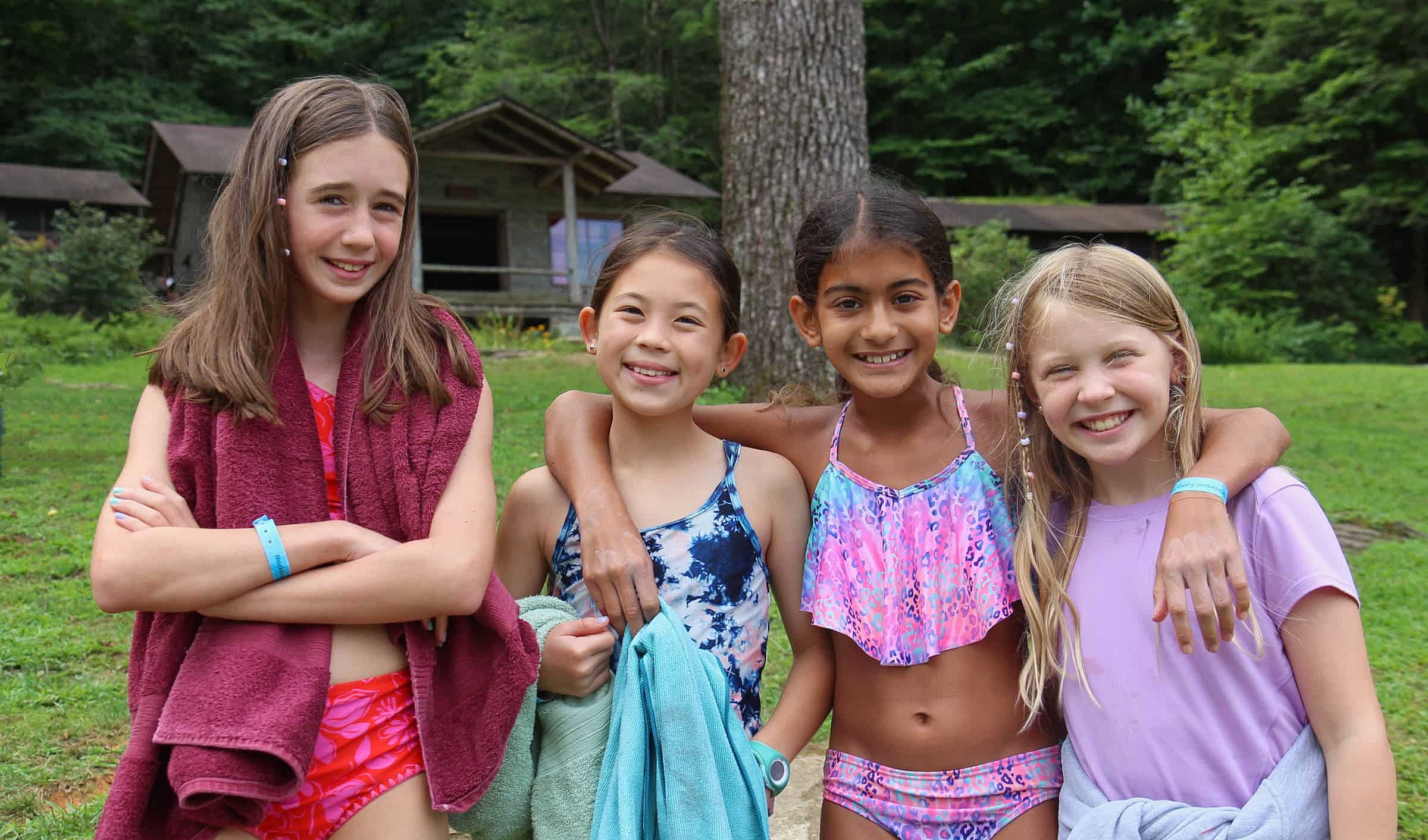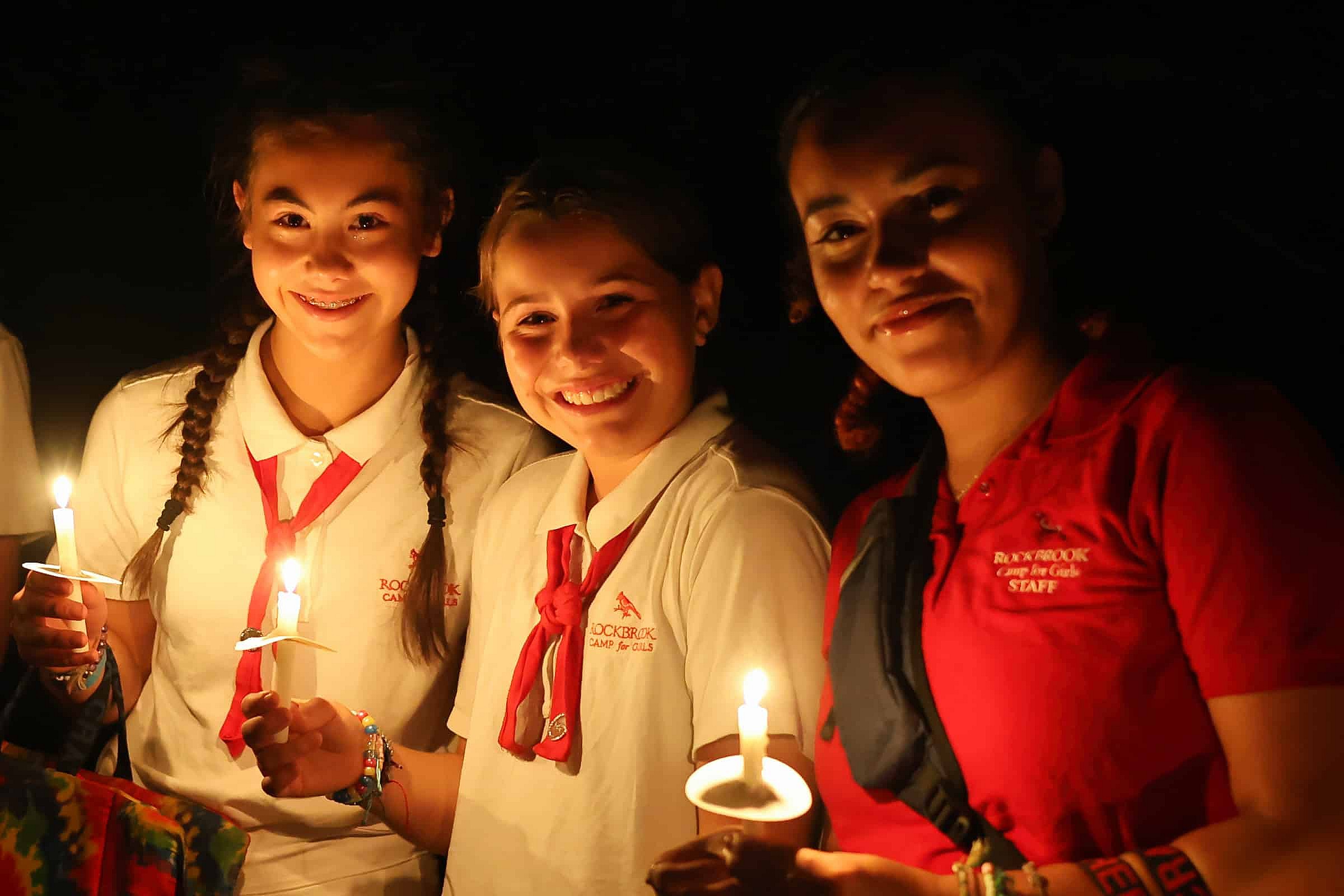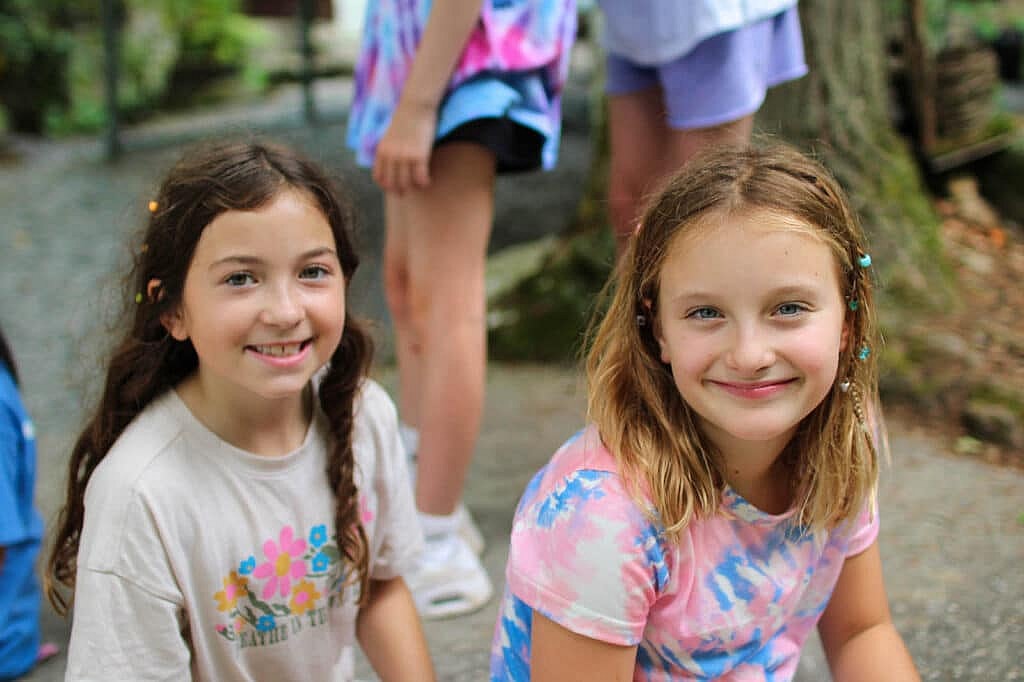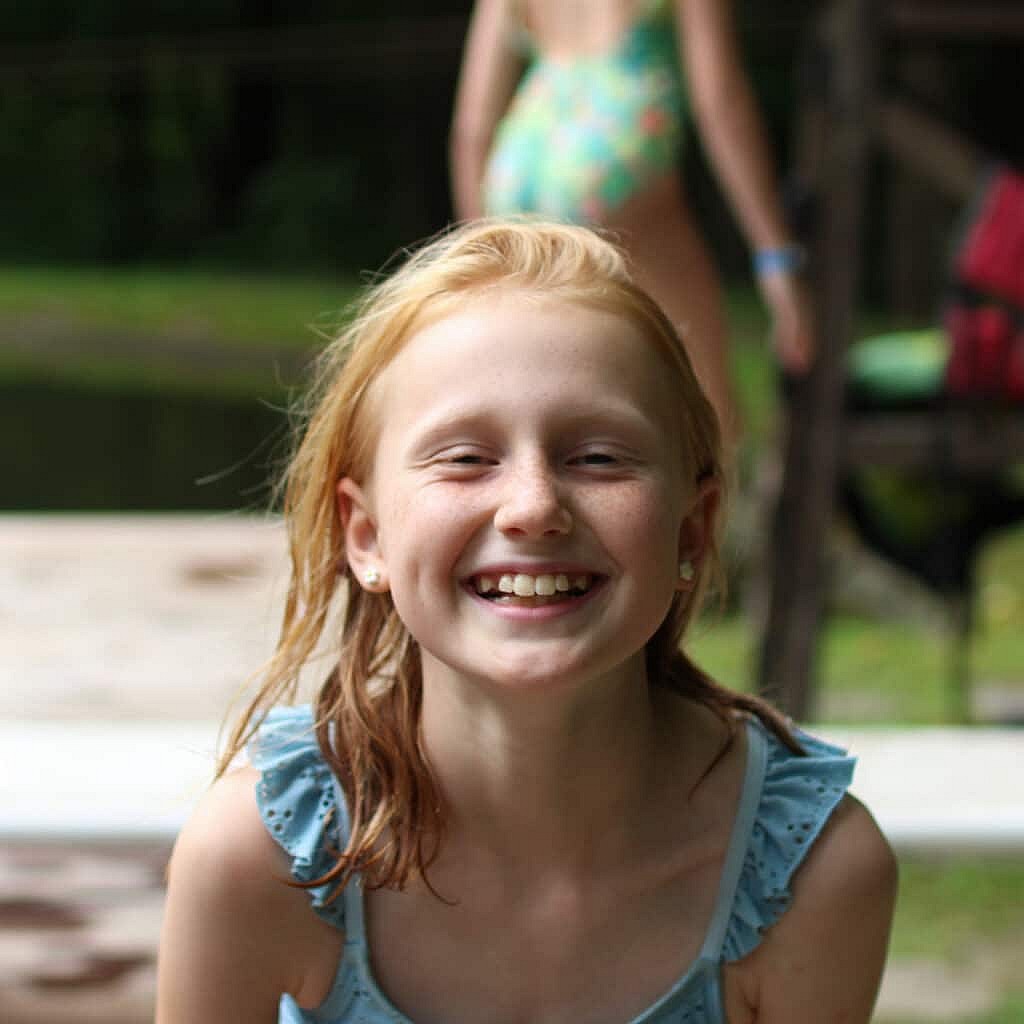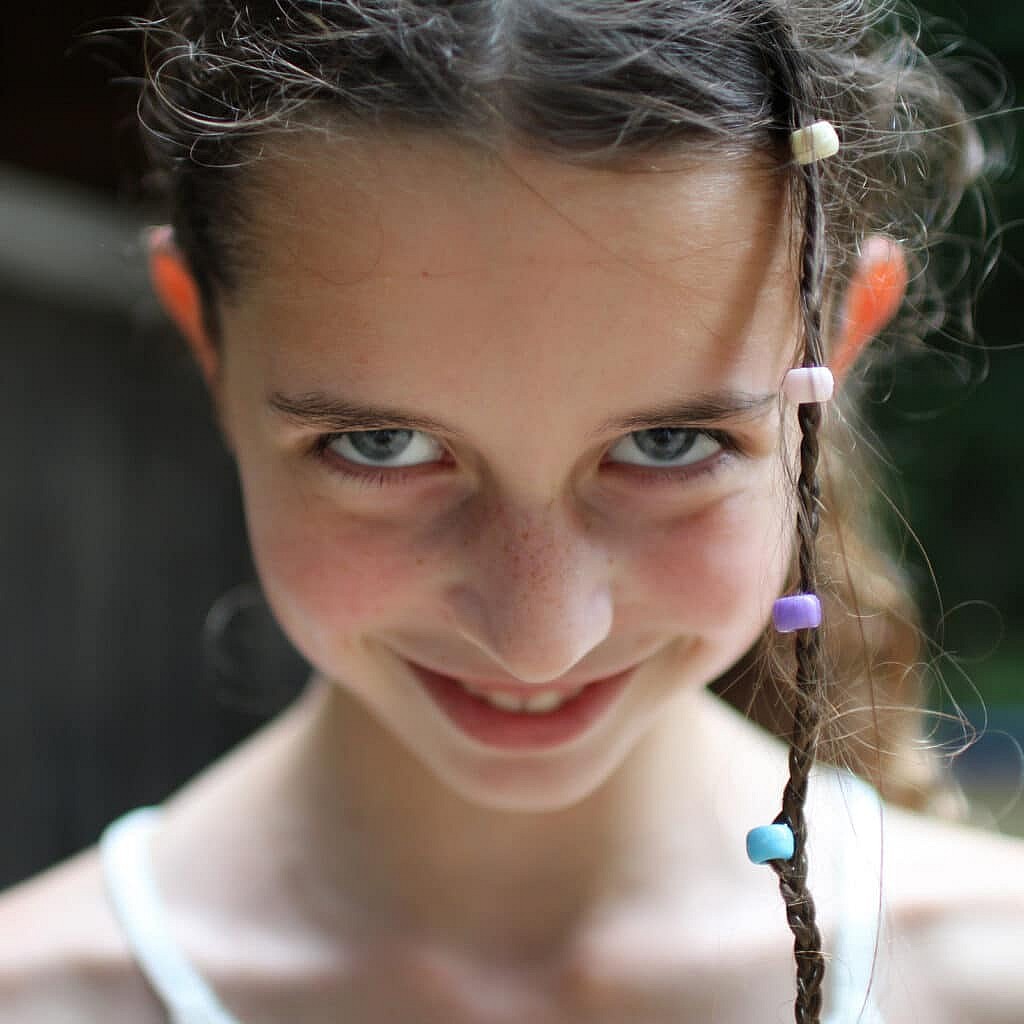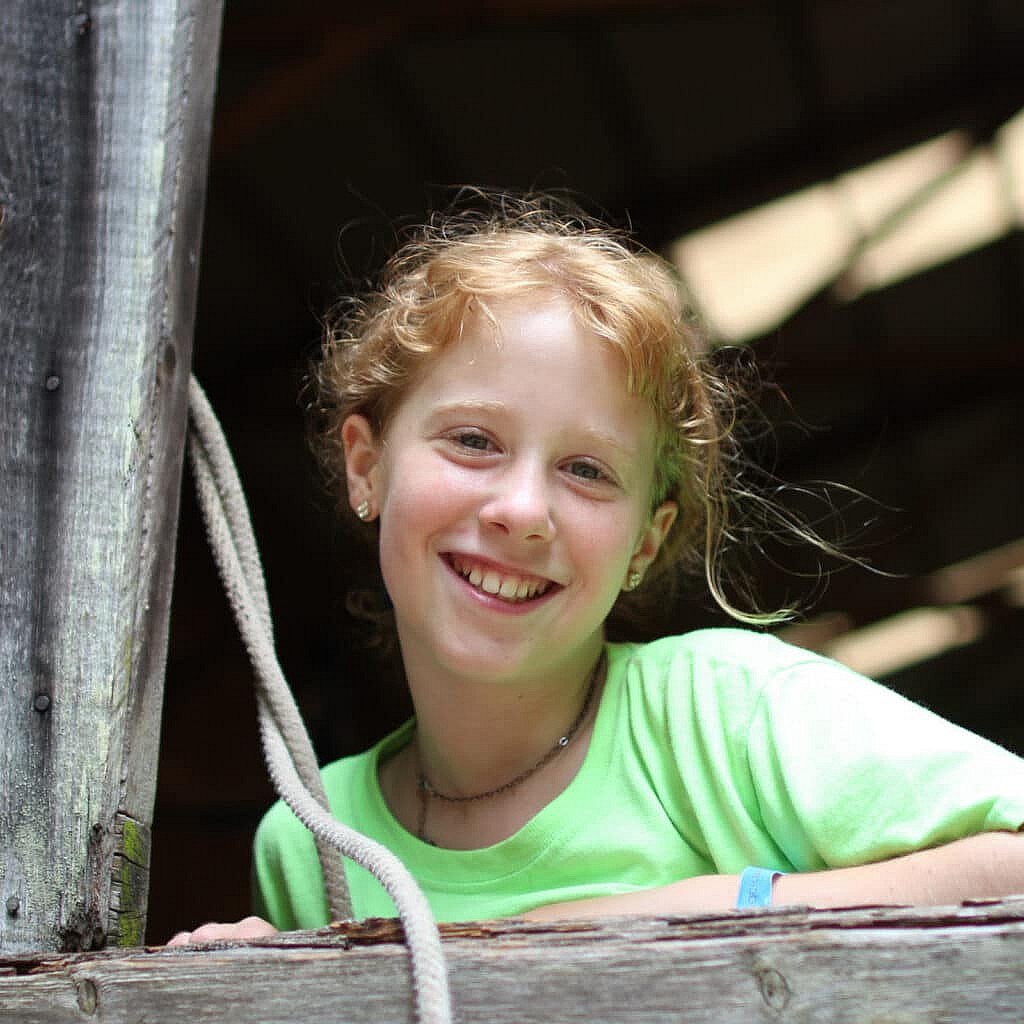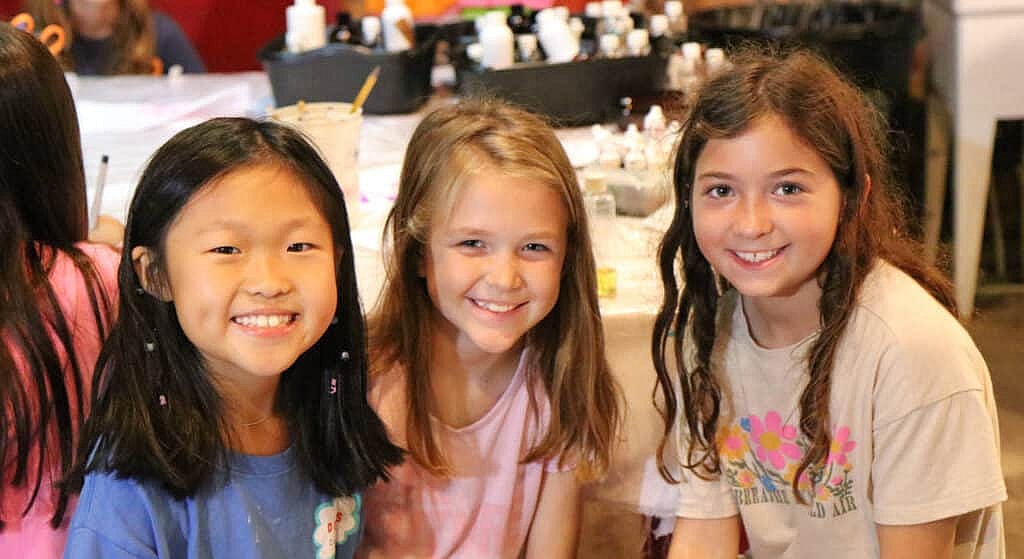Let’s discuss the closing day of camp. You might think it’s a simple matter of arriving to pick up your child and a return to normal life. While it does mean reuniting after being separated for these past few weeks, it’s also an emotional time for most girls, and there are a few things parents can do to help their children as they leave camp.
Pickup Time
We don’t assign arrival times for pickup like we do for the opening day drop off, and instead ask you to arrive on closing day between 9am and 11:30am. My first tip is this; try not to be either the first or the last parent to pick up your camper. It’s not always possible to avoid these extremes for pratical travel purposes, like needing to catch a flight for example, but aiming for mid-morning is best.
Being picked up first means being the first to say goodbye to everyone at camp. It feels the most abrupt having to drive away (or leave on the earliest airport shuttle) while everyone else gets to savor more time with each other. Leaving first is tough because it feels like your camp time is ending at the same time as you’re saying goodbye to ALL of your friends. It’s an intense jolt in two ways.
Being one of the last to be picked up from camp is difficult too. It’s exhausting to say goodbye over and over as each friend is called to leave while you stay behind. It’s a little sad too, as campers can’t help but think their parents have forgotten something. If you are delayed for some reason (e.g., traffic, etc.), please call the office so we can let your camper know you’re running late.
A Sense of Loss
It’s important to know there is a real sense of loss that comes with leaving camp. Earlier this summer I wrote about Rockbrook being a haven, about it providing relief from certain pressures and challenges girls commonly experience the rest of their lives. In ten significant ways, we saw how certain aspects of “regular life” are particularly difficult for kids. In a world that’s defined these days by constant competition and judgment (think of school), that’s reved up to a breakneck pace, lived mostly indoors and saturated with information, that’s laden with social pressures, assumed inferiority and often prejudice, and that defaults regularly to electronic media for entertainment, it’s tough being a kid. Throughout the year, there’s a lot to shoulder.
When camp provides a refuge from all of this, when girls join a community that’s free from these challenging forces, they experience the most incredible feeling of joyful freedom. That’s when they find themselves playing more, exploring and trying new things. That’s when they’re suddenly more independent, more confident, curious and resilient. That’s when they feel recharged, and begin to develop habits of kindness, of paying attention to others, and of enthusiasm for new experiences. Most importantly, the haven of the camp community provides the perfect safe environment to open up and be their true selves. And it’s this authenticity of self that enlivens the forces of friendship. Kids make their very best friends at camp as a result.
So this is what your girls feel they are losing when their camp session ends. They’re losing life in a haven where they feel so good, have so much fun, and are surrounded by such great friends, and they’re returning to a world where things are more difficult. The relief they experience at camp is coming to an end, at least for now. No wonder they are bound to be feeling sad! No wonder they are often crying.
How to Help
What can you as parents do to help your girls when they are leaving camp? First, take what we know they are going through and simply be understanding. This post helps you with that hopefully. Ask her about her friends and about what she liked about camp. Show her that you are interested in her experience at camp by listening to her. You can reassure her that she’ll be able to stay in touch with her camp friends (we’ll provide a list of everyone’s contact info), and if it feels right, that she can look forward to returning to Rockbrook next year.
Secondly, and this is really important, do what you can to ease your girls’ reentry into their lives at home and school. Remember, there’s a huge difference here. For example, go slow firing up a busy schedule of “things we’ve gotta do.” Try your best to turn down the heat of any pressure she might be feeling with respect to school. Remind her of good friends she’ll see back at home. I also would suggest not jumping right back online, into her phone. Maybe make a deal that you’ll leave your phones off in the car for the ride home, creating a good chunk of time for talking about her camp experience. Think of it this way; everything about her smartphone is antithetical to the life she lived at camp, so you can help soften her return to ordinary life by reducing the role it plays for her. Yes, older girls may feel they have “missed their phone,” but they also now know how great they feel without it. She may not see it this way, but you’ll be doing her a real disservice by handing over her phone as soon as she gets in the car. There’s nothing worse for extinguishing the camp glow she’s been feeling while here.
Leaving camp is tough, tougher for some than others, but it’s something we all have to do. And yes, it’s sad. Our challenge becomes discovering ways we can feel glimpses of camp magic in the currents of ordinary life. I believe it can be done, especially with good friends by your side. My hope is that your Rockbrook girls will feel empowered and find the courage to do exactly that.
We’ll see you on closing day. Oh, and you might want to plan a visit to Dolly’s before you leave town. She’ll love that.












